
He was alone when I first came, peeling a plover’s egg taken from the large nest of moss in the centre of his table.” With this memorable line, Evelyn Waugh reveals much about Brideshead and Sebastian — nobility, money, opulence and a sensibility of taste beyond that of the common man. Plovers’ eggs say it all.
Times have changed, and anyone now wishing to make so grand an impression will need to look elsewhere: plovers’ eggs and almost all wild birds’ eggs are off the menu.
Exceptional numbers
Though it is likely that Sebastian’s eggs would have been procured from the Brideshead estate, had they been bought they would have set the Marchmain household back a bob or two. In 1846 they were sold at market for ‘one and six’ per dozen, equivalent to £1.40 each. By 1915 they were forecast to sell at 30 shillings a dozen, about £13 each. This price may have come down, however, as it promised to be a good year for eggs because exceptional numbers of birds were fleeing from Europe to escape the guns.
Many readers will know that the bird in question was not the golden, ring or grey plover, but the lapwing, a bird that is plover in all but name, though sometimes called the green plover. Any such confusion is mild compared to that of what, precisely, ended up on the plates of the well-heeled. Endless species were passed off as plovers’ eggs.
Gull and rook eggs were among them and, fortuitously for the innocent buyer, the superior eggs of the golden plover. Collecting eggs was a highly lucrative sideline for country lads traversing the freshly ploughed fields in spring, so substituting a lookalike made good sense.
This story is from the June 10, 2020 edition of Shooting Times & Country.
Start your 7-day Magzter GOLD free trial to access thousands of curated premium stories, and 9,000+ magazines and newspapers.
Already a subscriber ? Sign In
This story is from the June 10, 2020 edition of Shooting Times & Country.
Start your 7-day Magzter GOLD free trial to access thousands of curated premium stories, and 9,000+ magazines and newspapers.
Already a subscriber? Sign In
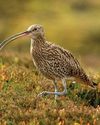
United we stand
Following United Utilities' decision to end grouse shooting on its land, Lindsay Waddell asks what will happen if we ignore our vital moors

Serious matters
An old gamebook prompts a contemplation on punt-gunning
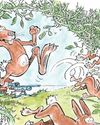
They're not always as easy as they seem
While coneys of the furry variety don't pose a problem for Blue Zulu, he's left frustrated once again by bolting bunnies of the clay sort
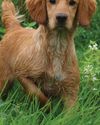
Debutant gundogs
There's lots to think about when it comes to making the decision about when to introduce your dog to shooting

When the going gets rough
Al Gabriel returns to the West London Shooting School to brush up on his rough shooting technique
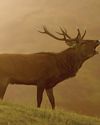
The Field Guide To British Deer - BDS 60th Anniversary Edition
In this excerpt from the 60th anniversary edition of the BDS's Field Guide To British Deer, Charles Smith-Jones considers the noise they make
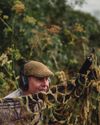
A step too far?
Simon Garnham wonders whether a new dog, a new gun and two different fields in need of protection might have been asking too much for one afternoon's work
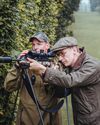
Two bucks before breakfast
A journey from old South London to rural Hertfordshire to stalk muntjac suggests that the two aren't as far detached as they might seem
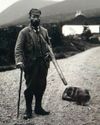
Stalking Diary
Stalkers can be a sentimental bunch, and they often carry a huge attachment to their hill

Gamekeeper
Alan Edwards believes unique, private experiences can help keepers become more competent and passionate custodians of the countryside